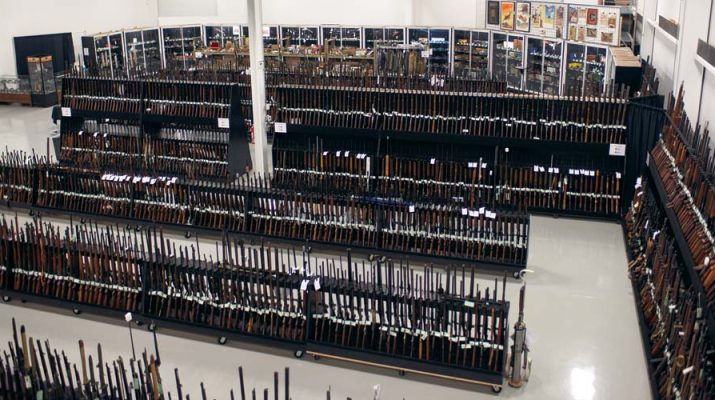Whether you’re looking to purchase a gun for sporting purposes or to add to a vintage collection, gun auctions are consistently one of the most popular auction types on the market. And while buying firearms at an auction may seem like it involves many hoops to jump through, the truth is this process is no more involved than many buying or selling other items at an auction.
To ensure all of the laws around firearms at auctions are clear, we created a list of some of the common questions and topics people tend to inquire about.
Who can Buy and Sell Guns at Auctions?
Nearly anyone can sell guns through an auction. Many auction houses have consignment auctions featuring firearms, in which case you’d simply call and set up your sale.
As for buyers, anyone can attend an auction as long as you’re 18 years old without a felony or other restrictions on your record (more on that later). According to federal laws, a dealer with a Federal Firearms License (FFL) can only sell a long gun (such as a rifle or shotgun) to buyers over the age of 18 and can only sell handguns to buyers over the age of 21.
Guidelines for Buying Firearms
The background check runs a person’s name through the following databases:
- Interstate Identification Index: Maintains criminal court records.
- National Crime Information Center: Shows people who have protective orders, active criminal warrants, or who have violated immigration law.
- NICS Index: Collects and maintains records of prohibited persons as contributed by local, state, tribal, or federal agencies. It also includes mental health records.
- Department of Homeland Security: Checks for citizenship information.
This process usually takes a few minutes to complete. If you pass the background check, you’ll have to sign and approve a Bureau of Alcohol, Tobacco, Firearms, and Explosives Form 4473, which helps individuals or businesses with an FFL determine if they may lawfully sell or deliver a firearm to the buyer. In other words, the buyer verifies none of the restrictions listed apply to them.
Some of the restrictions include people who fall into any of the following categories:
- Under indictment for a crime punishable by more than a year in prison
- Previously convicted of such a crime
- A fugitive from justice
- Controlled substance user
- Previously committed to a mental institution or deemed mentally incompetent
- An illegal immigrant
- Dishonorable discharge from the military
- Renounced U.S. citizenship
- Court-ordered restraining order against him or her
- Convicted of a misdemeanor related to domestic violence
Firearms can be purchased at both estate auctions and consignment auctions. When selling guns as part of an estate auction, the auctioneer is an agent of the executor and never takes possession of the firearms, they simply facilitate the auction. This means the auction house doesn’t need an FFL license to sell guns at an estate auction.
With a consignment auction, the original owner transfers ownership of the gun to an auction house, meaning the auction house would need an FFL to auction it off. Specific certifications aren’t required to sell a firearm at a consignment auction since a third party, in this case the auctioneer, sells the goods for you in exchange for a percentage of the profits. The seller needs to maintain possession of the firearms until the day of the auction.


